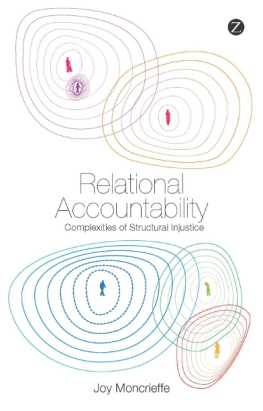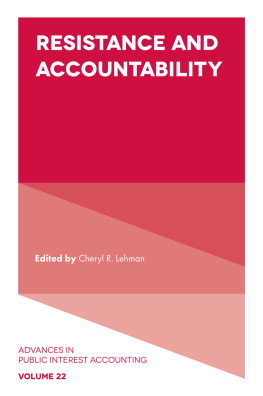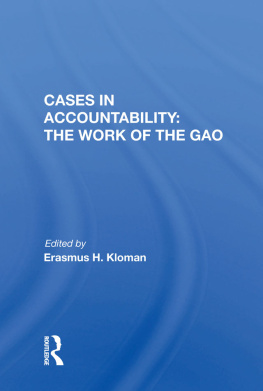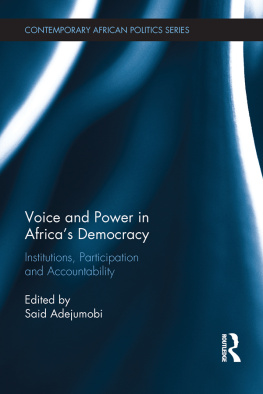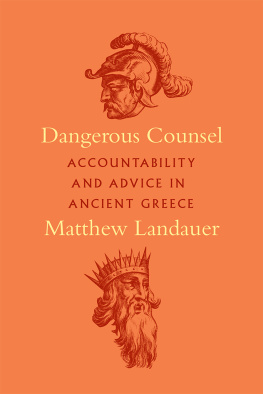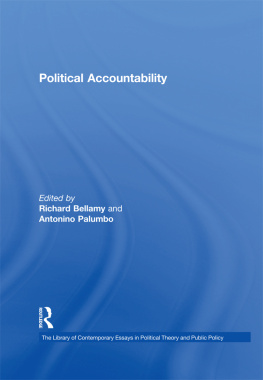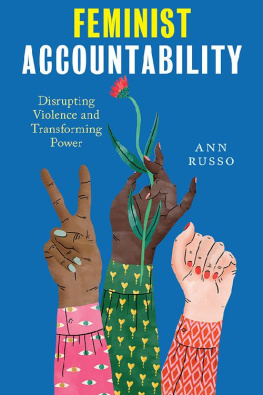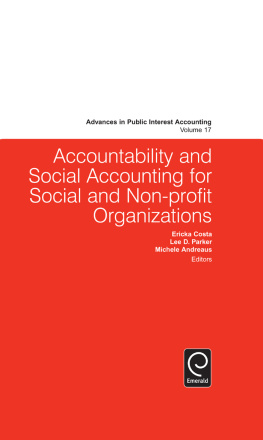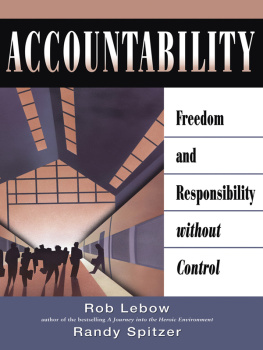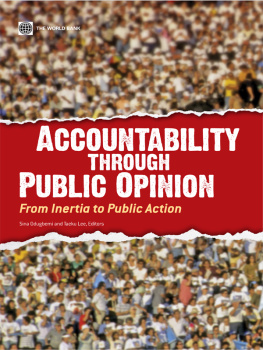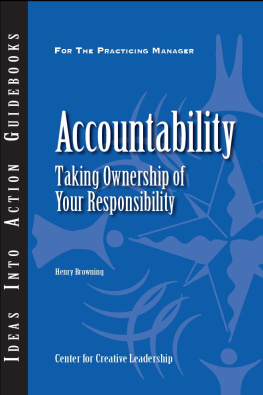About the Author
Joy Moncrieffe is a political sociologist and Fellow at the Institute of Development Studies, University of Sussex. She read for her BSc (International Relations) and first Masters Degree (MSc Social Sciences) at the University of the West Indies, Jamaica. She then completed her MPhil (Development Studies) and PhD (Social and Political Sciences) at the University of Cambridge, UK. Her doctoral dissertation examined ancient and modern ideas on political accountability and, against this background, used a rigorous case investigation of health administration and provision across socially and politically polarized communities in Jamaica to analyse the complex roles of power and social positioning in shaping actual relations of accountability.
Joy has, for many years, worked within the Caribbean and parts of Africa as researcher and policy analyst for community development and poverty reduction projects. Her current research and teaching interests include: the multi-dimensionality of power, citizenship(s) and accountability; complexity theories; poverty and inequalities; the politics of (in)securities; and history, race and ethnicity. Much of her advocacy work focuses on promoting socially just interventions in order to improve the life chances of children and youth who are now growing up in volatile and other fragile contexts. Among Joys recent publications is The Power of Labelling: How and Why Peoples Categories Matter, which she co-edited with Rosalind Eyben.
Relational Accountability
Complexities of Structural Injustice
Joy Moncrieffe
Relational Accountability: Complexities of Structural Injustice was first published in 2011 by Zed Books Ltd, 7 Cynthia Street, London N1 9JF, UK and Room 400, 175 Fifth Avenue, New York, NY 10010, USA
www.zedbooks.co.uk
Copyright Joy Moncrieffe 2011
The right of Joy Moncrieffe to be identified as the author of this work has been asserted by her in accordance with the Copyright, Designs and Patents Act, 1988
Typeset in Bembo by
Bookcraft Ltd, Stroud, Gloucestershire
Index by Liz Fawcett
Cover designed by Rogue Four Design
Printed and bound by
CPI Group (UK) Ltd, Croyden, CR0 4YY
Distributed in the USA exclusively by Palgrave Macmillan, a division of St Martins Press, LLC, 175 Fifth Avenue, New York, NY 10010, USA
All rights reserved. No part of this publication may be reproduced, stored in a retrieval system or transmitted in any form or by any means, electronic, mechanical, photocopying or otherwise, without the prior permission of Zed Books Ltd.
A catalogue record for this book is available from the British Library Library of Congress Cataloging in Publication Data available
eISBN 9781780322919
For Denise, who kept my head; and for my dear children, Miles Julien and Mayah Joele, who for every moment of every day unconditionally kept my heart
| ADRA | Action for Rural Development |
| ANC | African National Congress |
| ASEP | Alternative Secondary Education Programme |
| CBOs | community-based organizations |
| CCDC | Caribbean Child Development Centre |
| CDCs | community development committees |
| CSO | civil society organization |
| GoJ | Government of Jamaica |
| HEART | Human Employment and Resource Training |
| IADB | Inter-American Development Bank |
| ICT | information and communication technology |
| JBDC | Jamaica Business Development Corporation |
| JCC | Jamaica Chamber of Commerce |
| JFJ | Jamaicans for Justice |
| JSIF | Jamaica Social Investment Fund |
| J-TEC | Jamaica Tertiary Education Commission |
| KSAAF | Kingston and St Andrew Action Forum |
| MDS | Muktidhara Sansthan |
| NEI | National Education Inspectorate |
| NGO | non-governmental organization |
| NRA | Ncleo Representativo das Associaes do Dombe Grande |
| NSA | non-state actor |
| NVQ | national vocational qualification |
| OAS | Organization of American States |
| PMI | Peace Management Initiative |
| REAs | regional education agencies |
| SDC | Social Development Commission |
| TVET | technical and vocational education and training |
This book is the product of many years of learning about the principles and practice of accountability. It is the outcome of a struggle to reconcile the dominant framework for understanding accountability one that is concerned predominantly with the technicalities of governance with a relational approach. It is important to be clear here for governance has much to do with regulating relationships of power. It insists on crafting the institutions, management procedures, policies, guidelines and decision-making processes that allow for the effective execution of responsibilities. Good governance is critical. Yet, governance processes and mechanisms can be distancing; they can operate at a level that is too far removed from the human relationships they are attempting to regulate.
In 2001, I published an article in the journal Democratization, entitled Accountability: Idea, Ideals, Constraints. That publication was one product of a larger study that explored conventional understandings of accountability and used empirical evidence to challenge the predominant technical interpretations of the concept. As the title suggests, the article analysed the idea and ideals of accountability, focusing primarily on direct and indirect relationships between government and the electorate. It also highlighted some of the substantial constraints to accountability, such as the information gap between the politician and the electorate; the fallibility of constitutional safeguards; and the consequences of inadequate citizen involvement. The paper, and the larger study it drew from, made the point that relationships of power shape accountabilities, and that these relationships are often rooted in long-standing social, political and economic inequalities. This book develops that theme. It uses conversations and life stories to analyse the deep roots to differing levels and relationships of accountability, delving into areas such as social conditioning throughout childhood and the quality of agency interventions, including the intended and unintended power dynamics that are cultivated, sustained, challenged and changed.
Portions of the text have been published elsewhere and have now been revised and included, with kind permission from respective publishers:
Accountability: Idea, Ideals, Constraints in Democratization, Vol. 8, No. 3, October 2001 has been updated and represented in Chapter 1.
I have used case studies that were published in the following submissions:
(a) Beyond Categories: Power, Recognition and the Conditions for Equity, Background Paper for the World Development Report 2006 and book chapter in Bebbington et al., Institutional Pathways to Equity: Addressing Inequality Traps, Washington DC: World Bank;
(b) Intergenerational Transmissions and Race Inequalities: Why the Subjective and Relational Matter in

